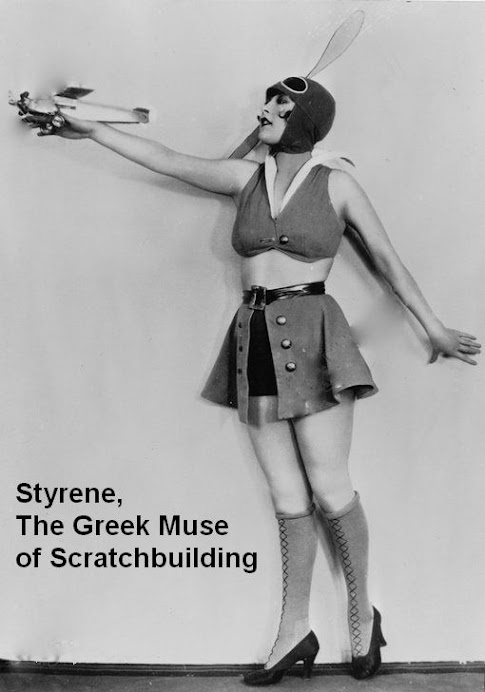(The original plane is being restored at the Musée Régional de l'Air - Anger:
http://www.avionslegendaires.net/wp-content/uploads/images/reportage/Riout-102T-Alerion-%C3%A0-ailes-battantes.jpg
I did not have this information -or much anything- at the time I made the model.)
Dragonflies have been around for hundreds of thousands of years. If you think they were big back then (two to three feet for some species), the real airplane that inspired this model had a wing span of eight meters.
Born in France, as you can infer by the baguette-like fuselage, this ornithopter –ornitho/bird pteron/wing- (flapping-wing flying machine) created great expectation –and confusion- but didn’t go too far. Far enough to provide for steady modeling amusing, though.
Imitating nature has been a profitable path for science, but not always works.
Since the beginning of
aviation history a number of designers tweaked around the concept, and in spite
of some encouraging little success, true achievement seems so far to have
eluded them.
The model at a glance:
The fuselage was made of Sculpey.
Some styrene sheet was used for the flying (flapping?) surfaces, a heat-n-smash
canopy stamped over a mold of Milliput, a few lengths of wire and Aeroclub
wheels account for most of it (sounds easier this way, doesn’t it?).
In the photos you can see the construction progress.
To abbreviate this article, regarding mistakes, I would say: think of any, I did it. Can’t quite get my hand with the panel lines (just two, one on each side along the fuselage); one was too deep, the other too faint. I even ended up with a tail sitter, but a trestle was sneaked below the tail.
A basic interior was provided and the model was primed, airbrushed gloss black –acrylic- and then given a few airbrushed coats with Testors aluminum enamel (wings) and Humbrol 11 (fuselage). A leftover decal was trimmed and applied to the vertical stabilizer and tiny decal strips made for the canopy framing.
It wouldn’t be out of place in a science-fiction movie, would it?
In the photos you can see the construction progress.
To abbreviate this article, regarding mistakes, I would say: think of any, I did it. Can’t quite get my hand with the panel lines (just two, one on each side along the fuselage); one was too deep, the other too faint. I even ended up with a tail sitter, but a trestle was sneaked below the tail.
A basic interior was provided and the model was primed, airbrushed gloss black –acrylic- and then given a few airbrushed coats with Testors aluminum enamel (wings) and Humbrol 11 (fuselage). A leftover decal was trimmed and applied to the vertical stabilizer and tiny decal strips made for the canopy framing.
It wouldn’t be out of place in a science-fiction movie, would it?
My thanks to master scratch modeler
Alain Bourret for the spark that started this construction.





















No comments:
Post a Comment